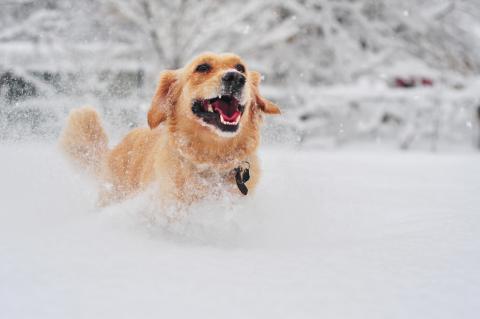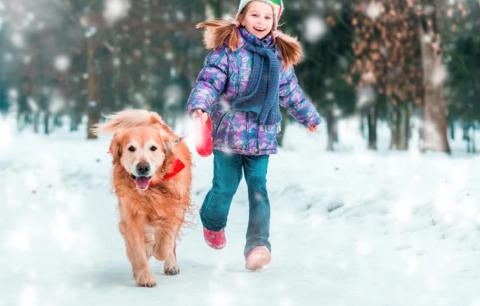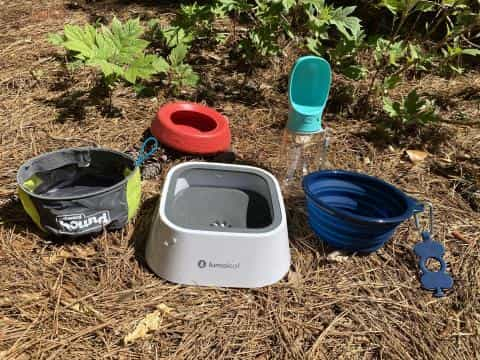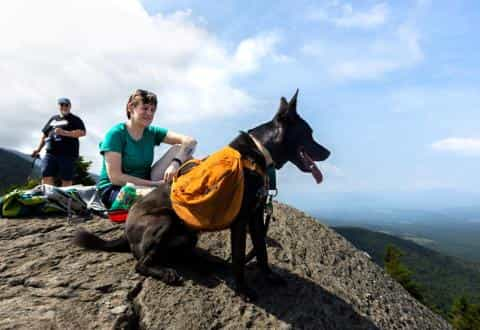
Published on March 6 by Julia
Winter can be a magical time for outdoor adventures, but cold temperatures, ice, and snow bring unique risks for active dogs. Whether your dog enjoys running, hiking, or playing in the snow, their safety should always come first. Here are six essential tips to keep your pup happy and healthy during the colder months.
Snow, ice, and salted roads can be harsh on your dog’s paws, leading to cracks, irritation, or even frostbite. Consider using dog boots to shield their feet from extreme conditions. If your pup isn’t a fan of boots, apply a paw balm or petroleum jelly before walks to create a protective barrier. Be sure to wipe their paws after every outing to remove salt and ice buildup.
Not all dogs have thick winter coats. Short-haired and smaller breeds are especially vulnerable to the cold. A well-fitted, insulated dog coat or sweater can help them retain body heat. Even for thick-coated breeds, extra layers may be needed in freezing temperatures. Always check for signs of discomfort, such as shivering or lifting their paws frequently.

Cold weather can quickly drain energy and expose dogs to dangerous conditions. On particularly frigid days, shorten walks or opt for multiple short outings instead of one long excursion. Pay attention to wind chill and temperature warnings, and avoid spending too much time outside when the weather is extreme.
Winter means shorter days and longer nights, increasing the risk of accidents during evening or early morning walks. Equip your dog with reflective gear, such as a light-up collar, reflective harness, or a leash with LED lighting. This ensures they remain visible to drivers, cyclists, and other pedestrians.
Just because it’s cold doesn’t mean your dog won’t get dehydrated. Dry winter air can be just as dehydrating as summer heat. Always bring fresh water on longer walks or hikes, and ensure their water bowl at home doesn’t freeze if kept outdoors. Snow is not a sufficient water source and can lower your dog’s body temperature.

Winter streets are often treated with ice-melting chemicals, which can be toxic to dogs if ingested. Antifreeze, in particular, is deadly and has a sweet taste that may attract pets. Always wipe down your dog’s paws and legs after walks, and keep chemicals stored securely out of reach. If you suspect poisoning, contact your vet immediately.
Winter can still be an exciting time for active dogs, as long as you take the right precautions. By protecting their paws, keeping them warm, staying visible, and preventing exposure to harmful substances, you’ll ensure your furry companion stays safe and enjoys the season to the fullest.
Discover More Content





